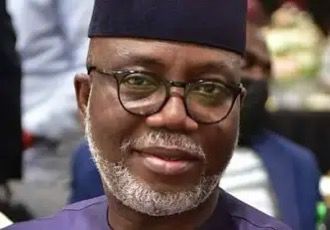In a dramatic turn of events, candidates in France are racing against the clock to register for the crucial run-off round of the parliamentary election. President Emmanuel Macron’s centrist camp and a left-wing alliance are scrambling to prevent the far-right National Rally (RN) from seizing power, following their surprising first-round victory.
The French electorate heads to the polls on Sunday for the decisive final round of the snap election, which Macron called after his party suffered a significant defeat in the European elections last month. The President’s gamble appears to have backfired, with Marine Le Pen’s RN emerging victorious in the initial round last Sunday, leaving Macron’s centrists trailing in third place behind the left-wing New Popular Front alliance.
The possibility of the far-right gaining control of France for the first time since World War II has prompted an unprecedented level of cooperation between Macron’s centrists and the New Popular Front, which includes the hard-left France Unbowed party. The two camps are urging tactical voting to block the RN from winning the 289 seats needed for an absolute majority.
Macron has called for a broad democratic coalition against the far-right, as the political crisis threatens to overshadow France’s preparations for the upcoming Olympic Games. Prime Minister Gabriel Attal, speaking to broadcaster TF1 on Monday evening, implored voters to reject the far-right, warning of the divisive impact it could have on French society.
“The far-right majority would be catastrophic for the French,” Attal stated, emphasizing the need for unity. Third-place candidates who qualified for the second round have been urged to withdraw to present a united front against the RN, with the deadline for decisions set for 6 pm Tuesday.
In an editorial, the daily newspaper Le Monde echoed this sentiment, advocating for a “strong republican front, uniting the left, center, and conservatives, to prevent France from tipping over.” Le Pen, meanwhile, has called on voters to grant the RN an absolute majority, positioning Jordan Bardella, the 28-year-old RN chief, as a potential prime minister despite his lack of governing experience.
Current projections indicate that the RN might fall short of an absolute majority, but the final outcome remains highly uncertain. The RN garnered 33 percent of the vote in the first round, compared to 28 percent for the New Popular Front and just over 20 percent for Macron’s camp.
On Monday night, Bardella criticized the coalition efforts of Macron’s camp and the left-wing alliance, dismissing them as a desperate and dishonorable attempt to thwart the RN. He accused Macron of aligning with a “violent extreme-left movement” that the President had previously condemned.
Macron convened a tense cabinet meeting on Monday to strategize the next steps. “Let’s not be mistaken. It’s the far-right that’s on its way to the highest office, no one else,” he reportedly declared, highlighting the high stakes of the election.
As France braces for the run-off, the nation faces the real possibility of a hung parliament, leading to potential political paralysis and chaos. With 76 candidates already elected in the first round, the final makeup of the 577-seat National Assembly will be determined after the second round, which will feature various run-offs, including some three-way and even four-way contests.




